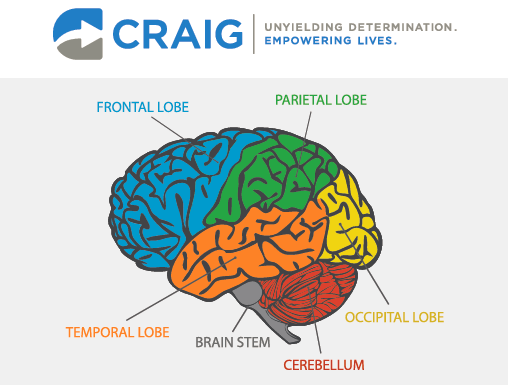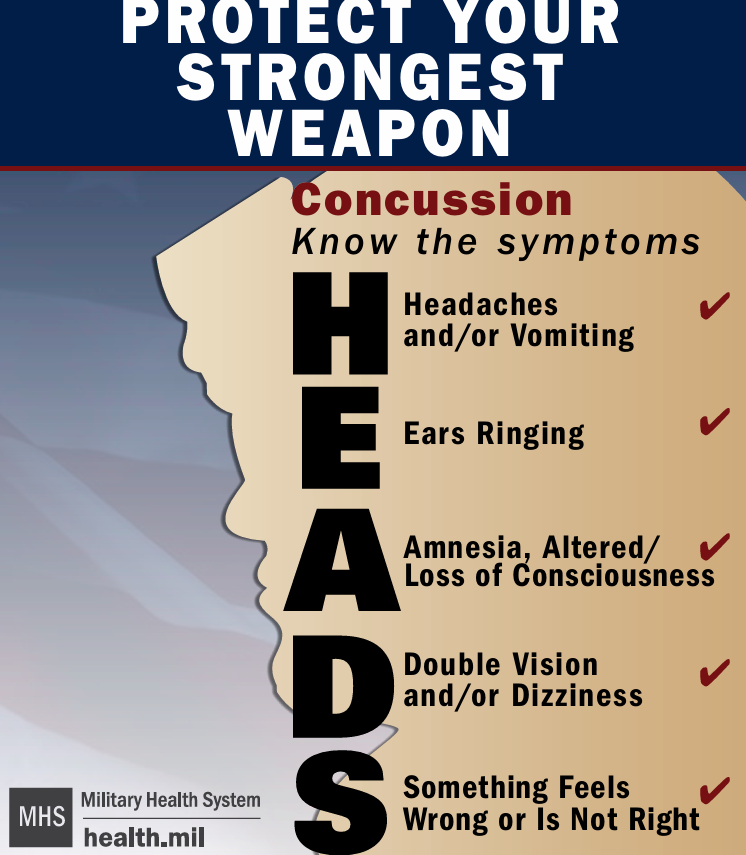
Operation TBI Freedom is a program at Craig Hospital that helps veterans, military members and their families. Photo courtesy of Craig Hospital.
By Eliza Marie Somers
A plethora of benefits are obtainable to veterans and active-duty military members who have suffered a brain injury, however, accessing these benefits can be like walking in a corn maze. And it’s this maze of paperwork and run-around that frustrates many TBI survivors.
To help veterans and military members, the Brain Injury Hope Foundation put together a panel of people who are well-versed in available resources for the Oct. 13, 2023 Survivor Series: The Impact of Traumatic Brain Injury on Military Families, Veterans and Active Service Members: A Resource Panel.
- John M. Lenz
Retired Master Sargeant, U.S. Air Force
Operation TBI Freedom
Craig Hospital
[email protected]
719-322-7137
- Suzanne M. Buemi
Colorado National Guard
J9-Joint Resiliency Directorate
State Family Program Director
https://co.ng.mil/family/
coloradojcf.org
[email protected]
Joint Resiliency Hotline: 866-333-8844
720-250-1186 - Chris Lewandowski, MSW, LCSW
Recovery Support and Education Specialist in Military Healthcare
The biggest challenge panelist Chris Lewandowski faces as a military social worker is the “stigma that there is no help out there. That no one cares or there is no support out there. …. There are great organizations out there like the Cohen Clinic, the DOD Centers of Excellence.”
The Steven A. Cohen Military Family Clinic at Red Rock in Colorado Springs serves veterans, military families and service members by providing “confidential, high-quality, behavioral health care services and local resource connections.”
Some of the health challenges the clinic addresses are:
- Depression
- Stress and Anxiety
- Post-Traumatic Stress Disorder
- Substance Use Disorder
- Sleep Problems
- Hypervigilance
- Anger, Grief & Loss
- Transitional Challenges
- Relationship and Family Difficulties
The clinic also can connect people to resources including:
- Caregiver Support
- Child Care
- Education
- Employment
- Housing
- Legal Assistance
- Military Transitions
- Peer Support
- Personal Finances
- Recreation
- Rehabilitation, Occupation and/or Physical Therapies
- Smoking Cessation
- Transportation
- Wellness, Health, Nutrition and Exercise
- Other Life Circumstances
For more information on the Cohen Clinic call 719-370-5141 or email [email protected]
The Department of Defense Centers of Excellence includes a TBI center that features TBI patient and family resources, information on blast exposure and research initiatives. There are resources for the family and caregivers.
The website also features a TBI Family biweekly podcast on such topics as Irritability and Anger, Sleep Issues and TBI, Women and TBI and Caregivers Helping Caregivers.Panelist John Lenz, who works with Operation TBI Freedom at Craig Hospital, said his major hurdle is getting people to accept they have a brain injury. “The biggest challenge I face is getting people to accept the new person who they are now, and in the process, they have to tweak a lot of things. Getting to the point of acceptance. And once that happens then the real work can start.”

John Lenz says acceptance of a brain injury is one of first steps in getting better.
Lewandowski agreed that acceptance is a key factor in recovery and some service members hide their brain injuries because “they don’t want to be pulled from their special forces teams or want it on their profile.”
Panelist Suzanne Buemi, who works with the Colorado National Guard, stated there are various levels of TBI, and veterans not admitting where they are on that scale hinders the healthcare personnel’s ability to help the service member and their families.
However, she did stress articulating the injury might be problem and that’s where an advocate can help veterans get the service and care needed. A Patient Advocacy Program is available at all VA Medical Centers.
- For more on advocacy, please read or watch the BIHF Survivor Series
Lenz said his role is to “create individualized care plans in a holistic way to increase independence.” Along with educating patients and their families about TBI and connecting them to resources.
One resource Lenz mentioned is the Polytrauma TBI System of Care available to military members and their families. https://www.polytrauma.va.gov/PolytraumaCenterDatabase/Veterans_Health_Registry.asp
He stated the patient should ask their VA primary care provider to refer them to the Polytrauma TBI System.
The referral opens up a wide range of care, Lenz said, including assessments, occupational therapy, interdisciplinary evaluation and treatment, development of a comprehensive plan of care, case management, patient and family education and training, psychosocial support, and application of advanced rehabilitation treatments and prosthetic technologies.
Camaraderie is Key
Lenz helps veterans with social support activities, stating TBI survivors tend to isolate after a brain injury. “How do we do that – It’s going out with other veterans to do things. It’s huge in the recovery process to have community and talking to others with TBI.”
One resource that offers a community is Team RWB (Red, White & Blue) The nonprofit organization offers live and virtual events, including yoga, rucking, running, functional fitness and cycling.
In her role working with Joining Community Forces, Buemi finds resources for veterans with “any type of need, not just TBI.” She connects veterans and their families with organizations – mostly nonprofits — that have been vetted and verified.
Some of the resources on the JCF website include:
- Education
- Employment
- Family and Youth Support
- Financial Support
- Health and Wellness
- Housing Assistance
- Legal Assistance
- Military Community Groups
One organization is the Defense and Veterans Brain Injury Center (DVBIC), which is a collaboration between the Department of Defense, the Department of Veterans Affairs and the Brain Injury Association of America. https://msktc.org/TBI Some topics covered on the DVBIC TBI page include:
- Balance
- Being a Parent with a TBI
- Alcohol and TBI
- Stress Management for TBI Caregivers
- Cognitive Problems after a TBI
- Chronic Pain and TBI
- Depression
- Driving after a TBI
- Fatigue and TBI
- Loss of Smell and Taste after TBI
The Joining Community Forces website contains a wealth of information, just under the Health and Wellness tab are resources for:
- Alzheimer’s Disease
- Dynamic Warriors
- Freedom Service Dogs
- Harmony Acres Equestrian Center
- PTSD Foundation of America
- River Deep Foundation
Lewandowski and Lenz suggested TBI patients and their families ask a lot of questions, talk to people who have experience working with TBI survivors, and use reputable websites instead of social media sites when seeking care.
Buemi agreed, “Start a conversation,” she said, adding that “trust is a big factor in receiving care and support. Ask for recommendations.”
Military Culture is Significant
Working with people who have military experience goes a long way with the military community, and it gives the patient a sense of comfort and creditability.
“It’s complicated,” Lewandowski said. “It’s not the same as an individual in the civilian world. … Nothing turns off a patient faster than someone who doesn’t understand the community.”
Care professionals who lack knowledge about the military and its culture are obstacles many women veterans and military members face when seeking help. Many are confronted with the question: You were a Marine? Or You were in the military?
“That’s an instant turnoff,” Lewandowski said. “It gives the impression that they don’t care.”
The military has numerous resources just for women, including these websites:

The team Operation TBI Freedom at Craig Hospital https://craighospital.org/operation-tbi-freedom consists of five members – all with military service of at least 10 years, some with combat tours. Lenz said his role at Operation TBI Freedom is “to create individualized care plans in a holistic way to increase independence.”
A brain injury can complicate mental health issues and finding care with a resource that understands the military culture can seem daunting. The panelists suggested two more resources that are supported by veterans: Headstrong https://theheadstrongproject.org/ and Give an Hour https://giveanhour.org/
Headstrong, which was started by veterans, is also available to military family members.
The Marcus Institute for Brain Health at the University of Colorado Anschutz Medical Campus in Aurora offers a variety of serves to veterans, including counseling and psychological therapy. https://medschool.cuanschutz.edu/mibh
Family Matters
Buemi stressed the importance of involving the whole family when it comes to care and counseling. “Don’t do it alone,” she said. Caregivers also need support and must take care of themselves in order to be strong for their loved ones, she explained.
- Health Care for Spouses, Dependents and Family Caregivers
https://www.va.gov/health-care/family-caregiver-benefits/
Another resource with military community staff is Mt. Carmel Veterans Service Center, https://www.veteranscenter.org/ , which offers support with health and wellness, transition and employment and family services. The resource also features a Veterans Voice podcast.
With all the resources available to veterans, military members and their families, a challenge for care providers is the TBI survivors’ readiness and willingness to work on getting better.
“One question to ask is – Am I ready to do this?” Lewandowski explained. The TBI survivor must be in the mindset to make hard choices and follow through on them.
And if the patient in not getting better, it is OK to speak up and ask to try something different or move to a different provider, Lewandowski stressed.
Satisfying Calling
All three panelist at the October 2023 Survivor Series have ties to the military community, either as veterans or spouse of veterans, and each panelist beamed when asked about their careers helping other military families.
“It’s been a dream job,” Lenz said. “It’s been tough and with a lot of tears, but seeing people get their lives back on track … They paid a lot for this country and it’s the least I can do. … It’s been incredible.”
“Working with families and seeing them turn things around by learning a new trade or going back to school and overcoming their fears to move forward and find their happy place has been rewarding,” Lewandowski said.
Buemi explained how helping a soldier, who was medically retired because of a TBI, save his home. The veteran lost his civilian job and was about to lose his home, but she was able to help him find employment as a mentor to support others with TBI. “It was a perfect fit,” she said. “He is thriving, doing well.
“It’s so much more than just doing your job,” Buemi explained.
It’s saving lives.
Resources
Military One Source
https://www.militaryonesource.mil/
Brainline
https://www.brainline.org/
Give an Hour
https://giveanhour.org/
Mt. Carmel Veterans Service Center
https://www.veteranscenter.org/
Health Care for Spouses, Dependents and Family Caregivers
https://www.va.gov/health-care/family-caregiver-benefits/
The Marcus Institute for Brain Health
https://medschool.cuanschutz.edu/mibh
Headstrong
https://theheadstrongproject.org/
Operation TBI Freedom at Craig Hospital
https://craighospital.org/operation-tbi-freedom
Center for Women Vets
https://www.va.gov/womenvet/
VA Women’s Health Services
https://www.va.gov/health-care/health-needs-conditions/womens-health-needs/
Women Veteran Call Center
https://www.womenshealth.va.gov/WOMENSHEALTH/wvcc.asp
Defense and Veterans Brain Injury Center
https://msktc.org/TBI
Joining Community Sources
https://coloradojcf.org/
Team RWB (Red, White & Blue)
https://teamrwb.org/
Polytrauma TBI System
https://www.polytrauma.va.gov/index.asp
https://www.polytrauma.va.gov/PolytraumaCenterDatabase/Veterans_Health_Registry.asp
VA Advocacy Program
https://www.va.gov/HEALTH/patientadvocate/
The Steven A. Cohen Military Family Clinic at Red Rock in Colorado Springs https://www.red-rock.com/cohen-clinic-colorado-springs/
The Department of Defense Centers of Excellence https://www.health.mil/Military-Health-Topics/Centers-of-Excellence
TBI Center of Excellence
https://www.health.mil/Military-Health-Topics/Centers-of-Excellence/Traumatic-Brain-Injury-Center-of-Excellence
Patient and Family Resources
https://www.health.mil/Military-Health-Topics/Centers-of-Excellence/Traumatic-Brain-Injury-Center-of-Excellence/Patient-and-Family-Resources

